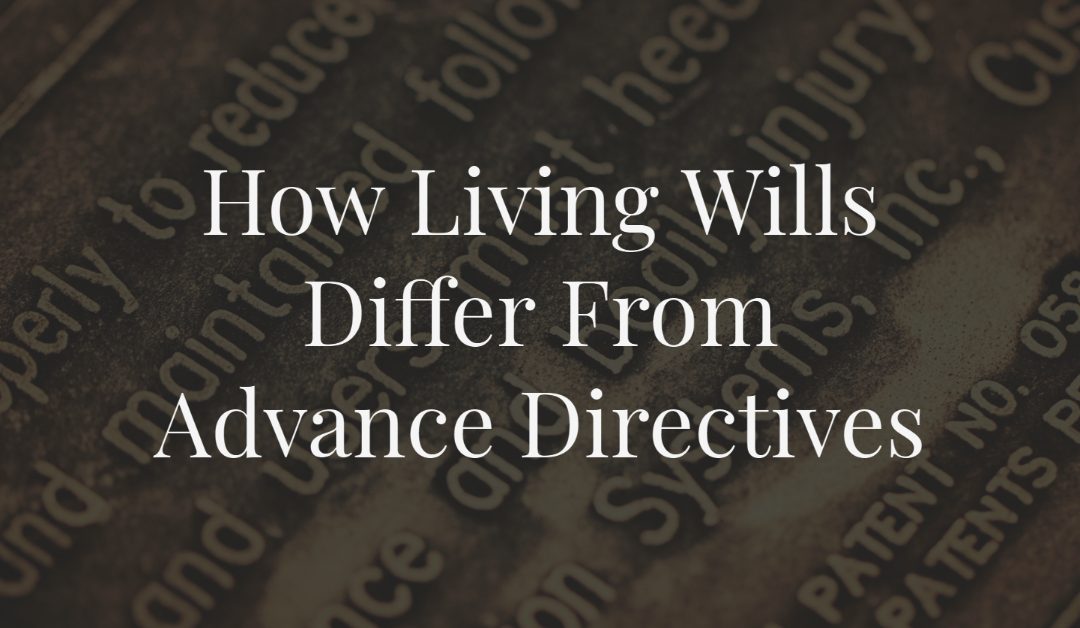None of us know what our future holds. If you end up in the hospital needing life-saving treatments, how will your loved ones know what to do? Advance Directives are legal documents that tell your family and friends what types of medical treatment you want if you can’t speak for yourself. But what is an advance directive vs a living will?
A living will is a particular type of advance directive that focuses on your medical choices if you are dying or permanently unconscious.
Advance Directive vs A Living Will
If you were in a car accident and needed resuscitation to live, would you want CPR? Many of us would expect life-saving measures in this situation. However, some of us would rather not endure extreme life-saving measures.
If you have an illness that requires frequent resuscitation, such as severe epilepsy or chronic cystic fibrosis, you may instead prevent life-saving attempts if you fall unconscious. This choice is your right. However, medical professionals, family, and friends can’t know your desire in these situations unless you spell it out.
Advance directives let everyone know what type of medical treatments you want and who will make decisions for you in a medical emergency. Advance directives include legal documents such as a healthcare power of attorney, a durable general power of attorney, and a living will.
Medical Power of Attorney
Also called a durable power of attorney for health care, this is a legal document that names someone to make medical decisions for you if you are incapacitated or incompetent. It is crucial to name someone so that you can trust you are in good hands. Naming someone with similar beliefs and thinking about whether they will take your desires into account is essential. Have a frank discussion with this person about what you envision for your medical needs should something happen.
Durable General Power of Attorney
A general durable power of attorney allows someone to act in a legal and business capacity for you, even if you become incapacitated or incompetent. This legal document is the most critical estate planning document if you might need long-term care at some point in your lifetime. If you don’t pick someone to make decisions for you, you could end up in court with a judge deciding a guardian for you. The durable general power of attorney allows you to choose this person before you need them.
A Living Will
Someone who is actively dying can desire to die more naturally or want only certain life-saving treatments, but not others. How can loved ones make decisions about your healthcare if you can’t guide them? A Living Will is a type of advance directive focused on your advance directives if you are dying or permanently unconscious.
- If you are in an accident or have a medical event leaving you permanently unconscious, how do you want your family and friends to make your medical decisions?
- Do you want to be kept alive at all costs?
- Do you want them to disconnect feeding tubes but keep respiratory therapy plugged in?
- How long should they keep you alive with extraordinary measures?
A Living Will often includes decisions about:
- Dialysis: The use of dialysis machines to do the job of failing kidneys
- Respirators and Aspirators: Machines that breathe for you and do the job of failing lungs
- Resuscitation measures such as CPR for heartbeat or breathing
- Blood transfusions
- Tube Feeding
A living will also often includes your decisions about organ and tissue donation. This decision, medical personnel need to know immediately. Time is of the essence when it comes to saving lives with your organ and tissue donation.
Make a Plan
When it comes to end-of-life care, you need a plan. Advance directives, including a living will are all about honoring your wishes should you become unable to make decisions independently.
Make these decisions now to save your family the heartache of not knowing what you would have wanted. Making decisions now can also help prevent family disagreements and alienation caused by the uncertainty of what to do for you.
Find Help
At Hopler, Wilms, and Hanna, our experienced estate planning attorneys can get you set up with everything you need for your future plans. We work with people just like you every day to draw up the legal documents necessary if the unexpected happens. Taking care of your plans now is a gift to your family later. Contact us and get started with a consultation.

